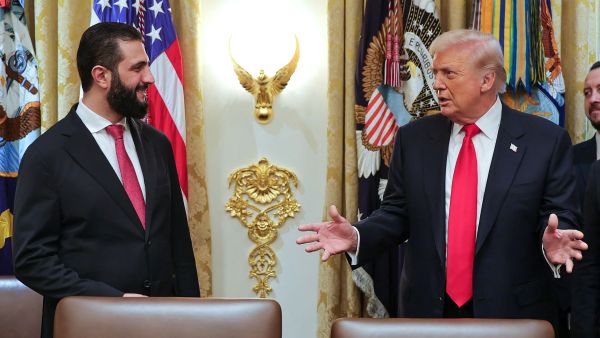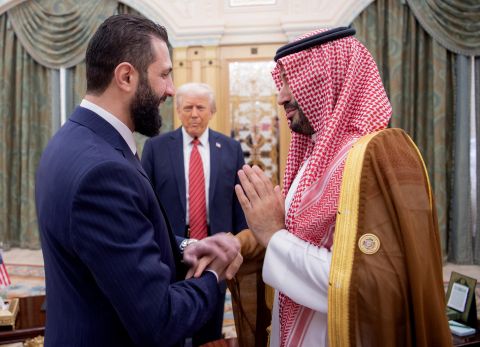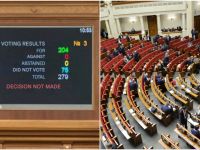ALBAWABA- In a moment of extraordinary diplomacy, Syrian interim president Ahmed al-Sharaa met U.S. president Donald Trump at the White House on Monday, marking the first official visit by a Syrian leader since the country’s independence in 1946.
The two-hour meeting, attended by senior aides from both sides, focused on counterterrorism, economic recovery, and regional stability. Trump praised al-Sharaa as a “pragmatic partner” committed to eradicating extremist networks and rebuilding Syria.
The meeting capped a sweeping U.S. policy shift toward Damascus. Just hours after al-Sharaa’s arrival, the U.S. Treasury Department suspended enforcement of key Caesar Act sanctions for 180 days, excluding any transactions linked to Russia or Iran, loosening restrictions that had crippled Syria’s economy since 2019.
The move followed a United Nations Security Council resolution the previous week delisting al-Sharaa from terror sanctions and approving expanded humanitarian aid routes into Syria.
Some sanctions remain in place on Assad-era figures and defense exports, but Damascus views the latest measures as a prelude to full normalization and a gateway to attract up to $100 billion in reconstruction investment.
Al-Sharaa’s rise from a former jihadist commander to Syria’s head of state underscores a dramatic national transformation. Once known as Abu Mohammad al-Jolani, leader of the Islamist group Hayat Tahrir al-Sham, he oversaw the December 2024 toppling of Bashar al-Assad before repositioning himself as a secular, reform-minded transitional leader.
His administration has curbed extremism, facilitated refugee returns, and initiated investigations into wartime atrocities, earning cautious praise from Western and Arab governments. Economic indicators have improved modestly, with exports rising 40% and the Syrian lira stabilizing under fragile ceasefires with Kurdish factions.
Relations with Israel featured prominently in al-Sharaa’s visit. Speaking to Syrian expatriates in Dearborn, Michigan, on Sunday, he signaled readiness for a “security pact” to prevent cross-border hostilities and limit Iranian influence.
The remarks coincided with Trump advisor Jared Kushner’s parallel talks in Tel Aviv with Prime Minister Benjamin Netanyahu, reportedly exploring joint frameworks linking Gaza demilitarization to future Syria-Israel normalization, potentially through a new round of U.S.-brokered accords inspired by the Abraham Accords.










